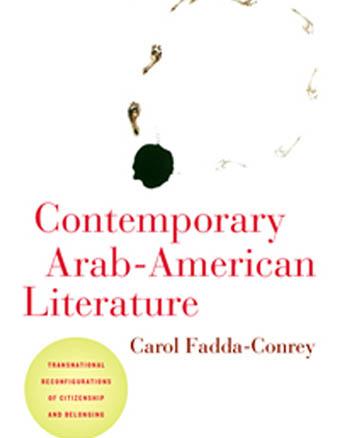Teaching Arabs, Writing Self: Memoirs of an Arab-American Woman
Evelyn Shakir
Massachusetts: Olive Branch Press/Interlink, 2014, 170 pp
In her memoir, Evelyn Shakir keeps readers on their toes and turning pages as much with her lively prose as with her insightful observations about herself, her family, new people and places, culture and life itself. Having previously published short stories and non-fiction about Arab-American women, she finally focuses on her own experience in what was to be her last book before her death in 2010.
Shakir’s descriptions of growing up in the Boston area are priceless, at once feisty and respectful of her Lebanese immigrant family. In some ways, their life was very American. Her uncle, for example, operated an amusement park on the Atlantic shore, where they spent summer holidays. Still, this was the America of the 1950s where a somewhat drab uniformity reigned, and she was always being reminded of falling short of the norm in subtle and not-so-subtle ways. Her parents smoked and drank, and her mother ran a business — all things which her fifth grade teacher said “the better class of people didn’t do.” (p. 8) For many years, Shakir just longed to fit in, but as she matured, attaining a top-notch education at Wellesley, Boston University and Harvard, and subsequently teaching writing at Bentley University, the US evolved too. Multiculturalism was gradually being recognised, and Shakir began to play a significant role in recording the Arab-American experience.
Once Shakir’s interest in her roots was awakened, she pursued it with vigour, which eventually led her to teach English literature in Lebanon, Bahrain and Damascus, often as a Fulbright Scholar. It is her experience there, and her interactive approach to teaching, that gives the book its title. As she was teaching Arab students English, she also hoped to find her own Arab identity, but as she discovered in Bahrain: “Although my students and I got along fine, it didn’t follow that they saw me as one of their people.” (p. 68) Their responses to the literature she selected for discussion was almost always surprising, and she was constantly reworking their opinions in her mind to learn more about them and herself. “It seems to me now, as I look back… that the roles of student and teacher kept turning inside out and back again, like the cupped hands of an Arab woman dancing.” (p. 72) “I’d been expecting a mirror and found a window… looking at my students, I wasn’t merely staring at my own face. Though, yes, I could still detect a family resemblance.” (p. 87).
Shakir’s account of her teaching experience is greatly enriched by her descriptions of everyday life and encounters with people outside academia in the three places where she taught abroad. For a variety of reasons, Damascus was the place where she was most able to fit into normal everyday life: “I hadn’t guessed that Syria would be so seductive or that it would challenge the hold that Lebanon had on my affections… I bantered with shopkeepers in my broken Arabic, cooked stews, brewed Turkish coffee, washed soot off the floors of my apartment, learned where to dispose of my kitchen garbage, coped with power failures and, once, a flooded bathroom.” (p. 141) Any foreigner who has lived in Damascus will immediately connect with her experiences. Shakir was there during the partial opening allowed by Bashar Assad in his first years of power, but her parting words on Syria, after returning to the US, are tragically predictive of today’s war.
Alternating anecdote with snatches of information about Bahrain, Lebanon and Syria, Shakir makes an understanding of life in these countries more accessible to outsiders, while playfully grinding many a stereotype into dust. Successive passages of “Teaching Arabs, Writing Self” attest to the fact that she was a woman who loved new beginnings, and consciously sought new adventures not only for the thrill involved, but for what she could find to expand her own horizons and those of others. The enthusiasm with which she embraced new situations is matched only by the bravery with which she received the news that her cancer had reoccurred after thirty years of remission. Brimming with humour, humanity, and thinking outside the box, Shakir’s book offers many new insights on Arab-Americans, the younger generation in Beirut, Damascus and Manama, cross-cultural exchange and, not least, the art of teaching.

















